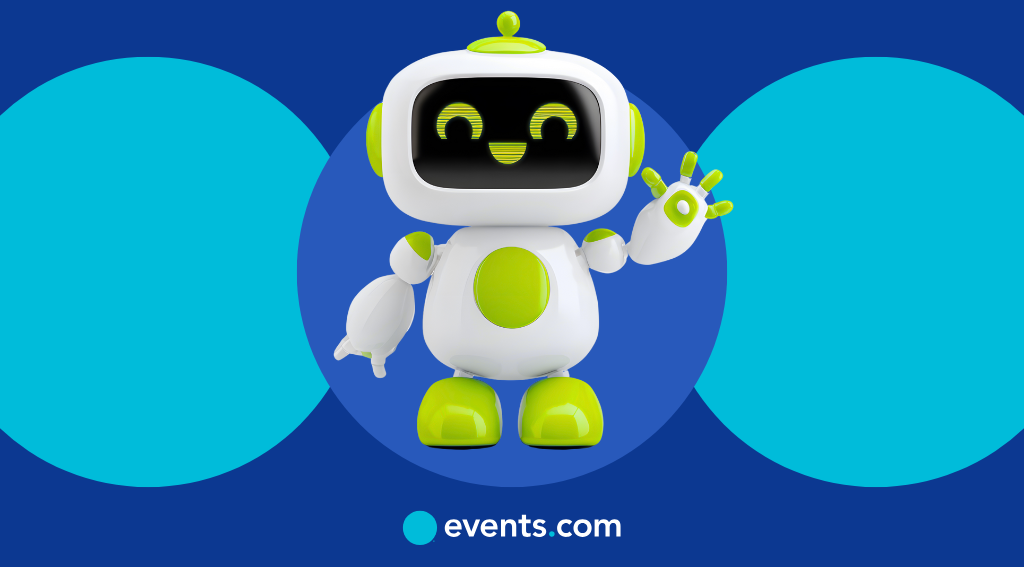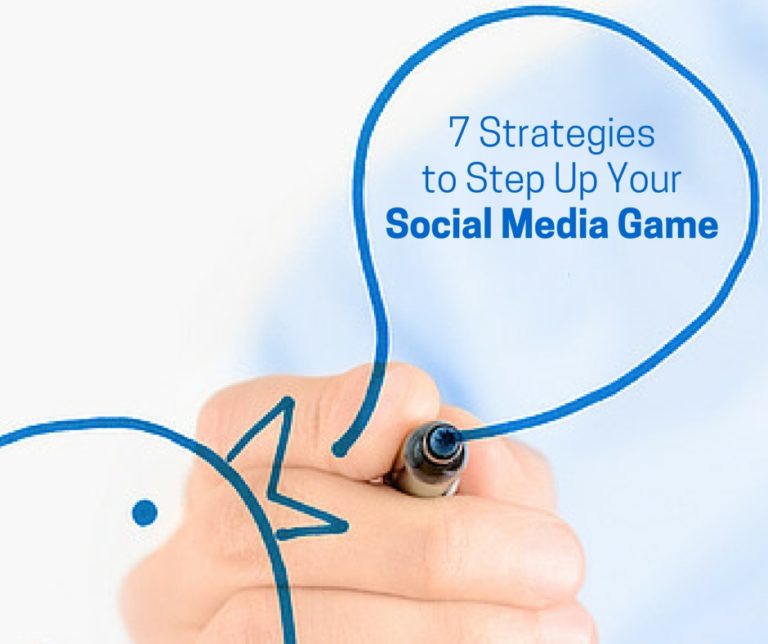Event planning often feels like juggling registrations, marketing, and engagement all at once — with too many tabs open and not enough time. That’s where AI comes in. More than a buzzword, it’s a practical partner that helps organizers streamline tasks, boost attendee interaction, and make smarter decisions. In this guide, you’ll see how AI is reshaping event planning with real examples, tools you can try today, and challenges to watch for. Want the big picture? Explore our State of XR & AI in Events Report for 2025.
What this guide covers
- An easy-to-understand look at AI for events and why it matters
- The biggest benefits and challenges organizers should know
- Practical tools you can use at every stage of the event lifecycle
- Future trends shaping the role of AI in events through 2025 and beyond
What is AI for events?
AI for events is the application of artificial intelligence to event planning and management. It uses smart technology to automate routine tasks, analyze attendee data, and personalize experiences. By handling everything from registrations to feedback, AI helps organizers save time, reduce errors, and improve decision-making while giving attendees more engaging and tailored experiences.
Chances are, you’re already using AI in everyday life. Netflix recommends shows based on what you’ve watched. Spotify builds playlists tailored to your taste. Siri, Alexa, or Google Assistant answer your questions in seconds. These aren’t futuristic gadgets, they’re everyday helpers powered by AI.
Now imagine those same kinds of tools built for your next event. Instead of playlists, you get personalized agendas. Instead of general search results, you get instant answers to attendee FAQs. And instead of guessing what worked, you get clear insights to guide your next move.
Why AI matters and where to use it
Event planning comes with endless moving parts, registrations, vendors, schedules, sponsors, and of course, keeping attendees happy. Trying to juggle all of that manually can feel overwhelming, and that’s exactly where technology can make a real difference. AI isn’t here to replace your role, but to give you back the time and headspace to focus on the big picture.
So where does AI fit in? The truth is, it can support you at every stage as you navigate the event lifecycle. Here’s a quick breakdown:
| Stage | How AI Helps |
| Planning & organization | Draft schedules, flag budget red flags, and coordinate with vendors more smoothly. |
| Marketing & promotion | Generate social posts, optimize email campaigns, and boost visibility with smarter targeting. |
| Engagement & experience | Match attendees with shared interests, provide instant FAQ support, and break down language barriers with live translation. |
| Post-event follow-up | Analyze feedback, track sentiment, and predict who’s most likely to attend next time. |
The result? Less stress, more clarity, and a better experience for both you and your attendees.
Benefits of using AI for events
By now, you can see how AI fits into the event lifecycle. But what’s the real payoff once you start using these tools? The benefits go beyond convenience, they can change how you plan, market, and deliver events.
- Speed and efficiency: AI takes care of repetitive tasks that usually pile up, from processing registrations to generating schedules. Some platforms can even auto-adjust agendas when a speaker cancels or a session runs long. That means fewer headaches and more time to focus on strategy instead of troubleshooting.
- A creativity boost: Stuck on a theme, or tired of recycling the same email copy? AI tools can brainstorm new directions, draft content, and even suggest activities that match your audience’s interests. While the final call is always yours, having a digital “idea partner” can spark inspiration you might have missed.
- Personalization at scale: Attendees expect experiences that feel tailored, not generic. AI makes it possible to recommend sessions, networking matches, or even local dining options based on personal preferences. Instead of a one-size-fits-all schedule, you’re giving each attendee an event journey that feels made for them. Music festivals are already using AI to recommend stage schedules based on the artists attendees stream the most.
- Smarter, data-driven decisions: AI analytics help you move from gut feelings to clear insights. You can track which sessions drew the biggest crowds, measure engagement in real time, and even predict which attendees are most likely to register for future events. With that kind of foresight, you can budget more wisely, fine-tune programming, and grow attendance year over year.
Of course, no tool is perfect. Before diving in, it’s important to know where AI can fall short and what challenges organizers should keep in mind.
Challenges and things to watch out for
AI offers a lot of promise, but like any tool, it comes with challenges you’ll want to consider before diving in. Keeping these in mind helps you use AI for events in a way that’s both effective and sustainable.
- Data privacy and trust concerns: Attendees share sensitive information when they register for events, from contact details to payment information. If AI tools aren’t handled carefully, that data can be at risk. Organizers should make sure any AI platform they use complies with privacy standards like GDPR and communicates clearly with attendees about how their data is being used. Trust is the foundation of a strong event community.
- Over-reliance on automation: AI can save time, but it shouldn’t replace the personal touches that make events meaningful. For example, a chatbot can answer FAQs, but it can’t replace a warm welcome from your team. AI works best as a support system, not the main act, it should enhance human creativity, not overshadow it.
- Cost and accessibility: While some AI tools are affordable or even free, advanced platforms can be pricey, especially for smaller events. Organizers need to weigh the return on investment and start with tools that solve their biggest pain points first. Accessibility also matters, make sure the tools you choose are easy for both your team and attendees to use. Smaller community events sometimes start with free or low-cost tools like chatbots before investing in larger AI platforms.
- The learning curve: For organizers who are new to AI, getting comfortable with these tools takes time. Some platforms require training or trial-and-error before you see real results. The good news is that many AI tools are becoming more user-friendly, with templates, guided prompts, and support teams to help you get started.
Now that we’ve covered both the upsides and the challenges, let’s look at some of the most practical tools you can try today to see AI for events in action.
Tools to try: AI for events in action
AI tools are most powerful when matched to the right stage of your event. Here’s a quick snapshot of where they fit best:
| Stage | Key Tools to Try |
| Planning & organization | Events.com AI Event Name Generator, ChatGPT/Jasper |
| Marketing & promotion | Seventh Sense, Persado, HubSpot AI features |
| Engagement & experience | Events.com Virtual, Brella, Drift/Intercom |
| Post-event follow-up | Events.com POS & Insights, Events.com AI tools |
Now let’s take a closer look at how these tools support you from the earliest planning conversations to post-event wrap-up:
Planning & Organization
- Events.com AI Event Name Generator: One of the first challenges organizers face is finding the perfect name. This tool takes your event theme, style, and audience into account to generate creative, on-brand names that stand out. No more endless brainstorming sessions, it gives you fresh options in seconds.
- ChatGPT or Jasper: Think of these AI assistants as brainstorming partners. They can help draft detailed agendas, generate session titles, or polish speaker bios. Instead of starting from a blank page, you get a strong first draft that saves hours. Some organizers also use them for quick “what-if” scenario planning, like adjusting schedules when a session runs long.
Marketing & Promotion
- Seventh Sense or Persado: Timing is everything in event marketing. These tools analyze audience behavior to pinpoint the best time to send emails or post updates, boosting open rates and clicks. Persado even fine-tunes the tone of your messaging, helping you choose language that resonates most with your audience.
- HubSpot’s AI features: For organizers already using HubSpot, the AI add-ons help automate ad targeting and content creation, ensuring your event promotions reach the right people with less manual effort.
Engagement & Experience
- Events.com Virtual or Brella: Networking is often a top reason people attend events. These platforms use AI to match attendees based on their goals, job roles, or shared interests, so participants don’t just collect business cards, they make valuable connections.
- Drift or Intercom: AI chatbots that serve as your event’s 24/7 help desk. They answer FAQs instantly, guide attendees to the right sessions, and reduce the pressure on your support team. Some even handle multiple languages, making your event more accessible.
Post-Event Follow-up
- Events.com AI tools, POS, and Insights: Built for organizers, these tools close the loop after your event. You can track ticket sales in real time, analyze attendee feedback, and identify which sessions drove the most engagement. Insights help predict who’s likely to return next time, turning data into action for your future events.
Future of AI in events
AI for events is still evolving, and 2025 promises to bring even more tools to make organizing easier and experiences richer. Here are a few trends already starting to take shape:
- Predictive analytics that feel like foresight: Imagine knowing not just who might attend your next event, but which sessions they’ll be most interested in. Predictive AI will move beyond analyzing past data to giving organizers clear, actionable forecasts.
- Immersive AI meets XR: As extended reality (XR) continues to grow, AI will play a key role in creating more immersive experiences. From virtual venue walkthroughs to AI-guided networking in hybrid spaces, these tools will help events feel more engaging whether you’re onsite or online.
- Agentic AI as digital teammates: Agentic AI, systems that don’t just respond but can act on your behalf, will take event support to the next level. These agents go beyond traditional chatbots. They can coordinate tasks, manage vendor communications, or even track attendee sentiment in real time. Instead of adding more work, they’ll operate like reliable teammates who anticipate needs and keep things moving.
But here’s the key, AI won’t replace the human connection at the heart of every event. Organizers bring the creativity, intuition, and community spirit that no algorithm can match. The future of AI in events is about support, not substitution, helping you shine while keeping the focus on meaningful connections.
The future of events starts with one AI tool
AI for events isn’t about hype or replacing the human side of planning, it’s about making your job easier. From saving time on manual tasks to engaging attendees in more meaningful ways and making smarter, data-driven decisions, AI is becoming a powerful partner for organizers at every stage of the event lifecycle.
If you’re curious about what it can do for you, start small. Experiment with one AI tool at your next event, whether it’s an agenda builder, a matchmaking app, or a chatbot. You’ll be surprised at how much lighter the workload feels and how much more time you have to focus on the big picture.
Want to dig deeper? Check out the full State of XR & AI in Events Report for strategies, tools, and real-world examples you can apply right now. And if you’re ready to see how Events.com can support your next event with AI-powered tools, book a demo today!
FAQs about AI for events
- How is AI transforming the events industry in 2025?
AI is helping organizers save time, reach more attendees, and deliver personalized experiences. In 2025, the big shift is toward predictive analytics and immersive tools that make events feel more connected—whether they’re in-person, virtual, or hybrid.
- What are the primary uses of AI in event planning and management?
Organizers use AI to draft agendas, manage budgets, and streamline logistics. It also powers marketing campaigns, matchmaking apps, chatbots, and post-event feedback analysis. In short, it supports every stage of the event lifecycle.
- Which AI tools are most popular for event organizers today?
Some of the most widely used tools include ChatGPT or Jasper for content creation, Brella and Grip for networking, and marketing tools like Seventh Sense or Persado. Event-specific platforms like Events.com AI tools, POS, and Insights are also growing in popularity because they’re built with organizers in mind.
- How can AI improve attendee engagement and personalization at events?
AI can recommend sessions based on interests, match attendees with peers who share goals, and provide instant answers to FAQs through chatbots. It can even handle live translation, making events more inclusive and accessible. The result: attendees feel recognized, connected, and engaged.




